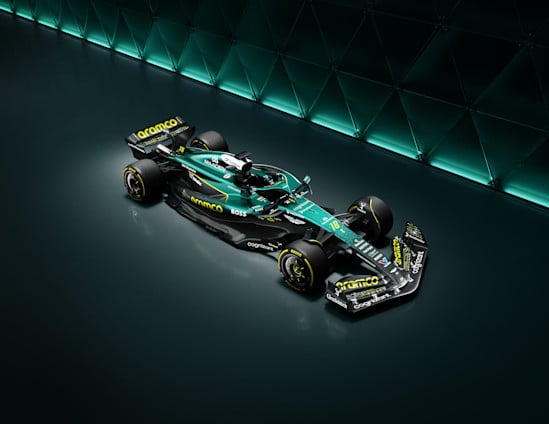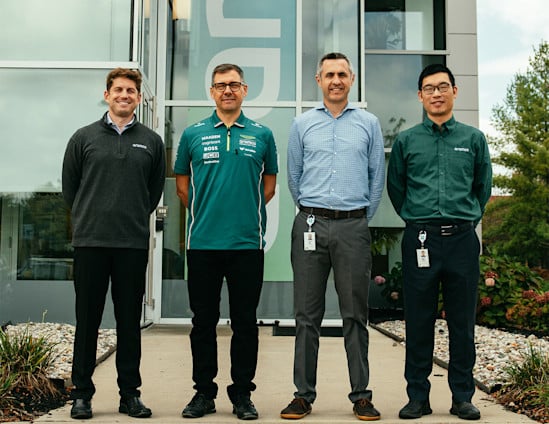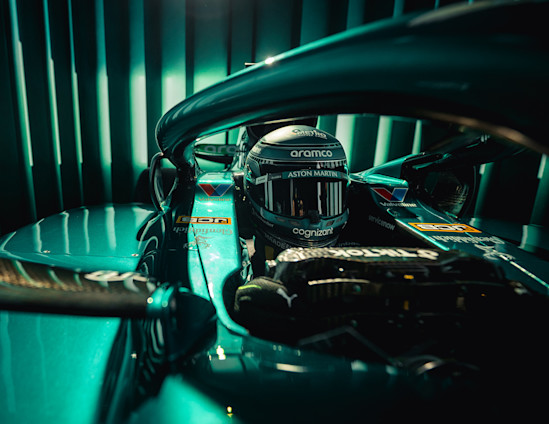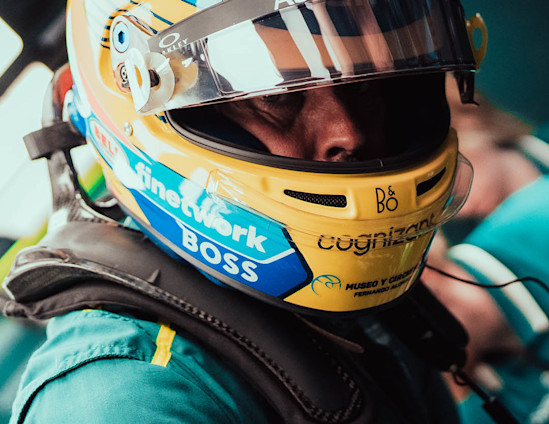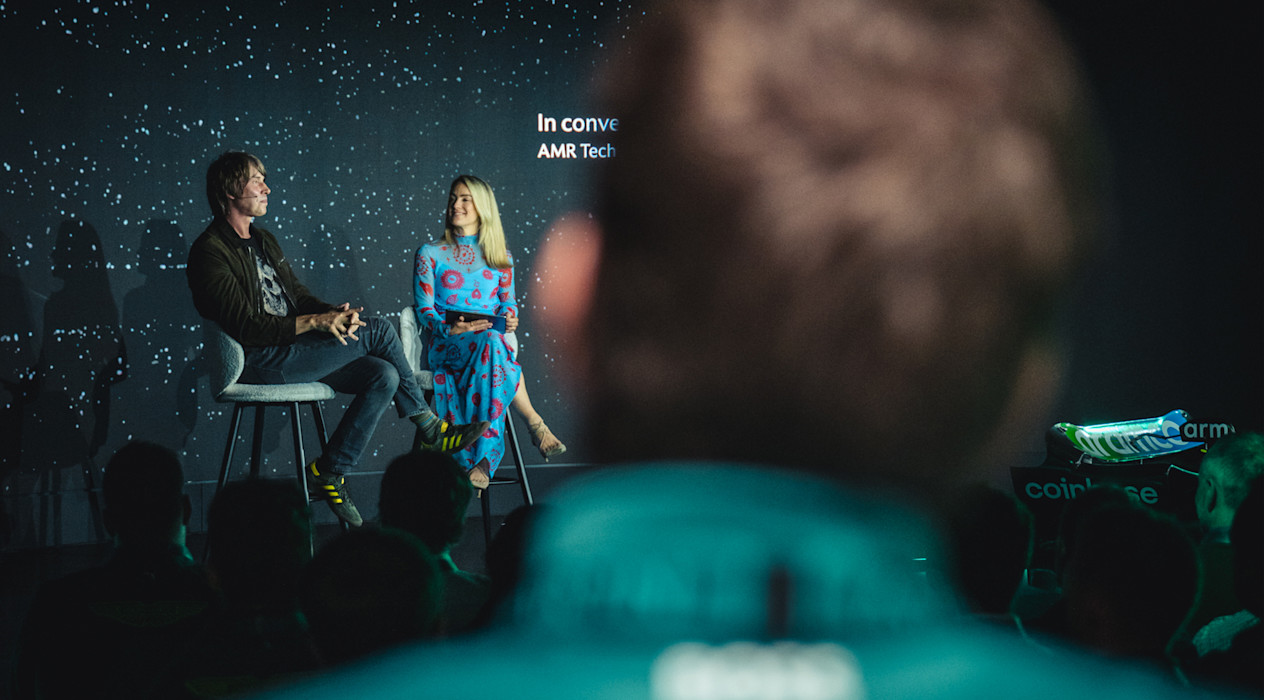
Professor Brian Cox CBE steps into the world of Formula One, drawing parallels between the awe-inspiring subject of astrophysics and cutting-edge motorsport.
From galaxies to ground effect.
We're putting our biggest and most enduring collab, a collab with science, in the spotlight and inviting you to explore the innovation and ingenuity that underpins our sport – to See the Science. A hotbed of fascinating physics and maths, of state-of-the-art engineering, and of staggering facts and figures, Formula One is a sport with several similarities to astrophysics.
Similarities which, with the help of Professor Brian Cox CBE, we explored at the AMR Technology Campus as he joined us for a conversational deep dive into the science that governs the universe and our sport, as well as to tour our home and meet another master of his own field: Adrian Newey.
From how Formula One and cosmology are connected to what black holes and quantum computing have in common, here are the most thought-provoking quotes from Brian's illuminating discussion that you'll be desperate to share.
1 | 3D printing and the search for extra-terrestrial life
"The AMR Technology Campus has the biggest deployment of 3D printers I've ever seen. There are so many things that stand out about those machines.
"Walking around, I thought the manufacturing technology and the 3D printers were very interesting. And one of the reasons, which is a more abstract reason, is there's a wonderful argument against the existence of extra-terrestrial life, which is called the Fermi Paradox, which is that we don't see any evidence of any of the civilisations.
"One of the arguments is basically 3D printing-based. There's a machine called the von Neumann machine, which is essentially a replicator. The idea is that you could launch that machine into space and it does some mining, does some 3D printing, copies itself and sends a copy out. If you can do that, you essentially become immortal as a civilisation.

"These things spread around the galaxy, and you can calculate how long it would take to spread those across the galaxy, given that they take some time to do the 3D printing. After a few hundred thousand years, you should cover the galaxy with your von Neumann machines – your 3D printers. But we don't see any evidence that anyone has ever done that.
"So the argument then becomes, why? Is it because you can't build a replicator? Well, looking at the 3D printers in the factory, the answer looks like you can. They've not been in existence for very long. Imagine what those things are going to be like in 10, 20 or 100 years."
2 | Hydrogen, helium, gravity, and Formula One
"The story of the universe is the story of emergence, and it's a remarkable story.
"Think about the universe as it was just after the Hot Big Bang. After three minutes, you've got hydrogen and helium, and then some gravity. And then 13.8 billion years later, hydrogen, helium and gravity delivers this – it delivers Formula One cars. That's a good example of emergence."
F1 is engineering on the edge.
3 | Formula One's framework forces innovation
"As I went around the Technology Campus, and it is one of the most astonishing things I've ever seen, it occurred to me that it's engineering on the edge.
"It may be the best example of where you have a framework you have to operate in. That framework forces innovation, almost on a daily scale, and that's what struck me. I hadn't really understood the problems you're facing and the challenges that you're facing and the things you're learning from the sheer amount of data that comes out.
"I think it's the best example I've seen of where you have to solve problems, technical problems, and solve them creatively on such a short timescale."
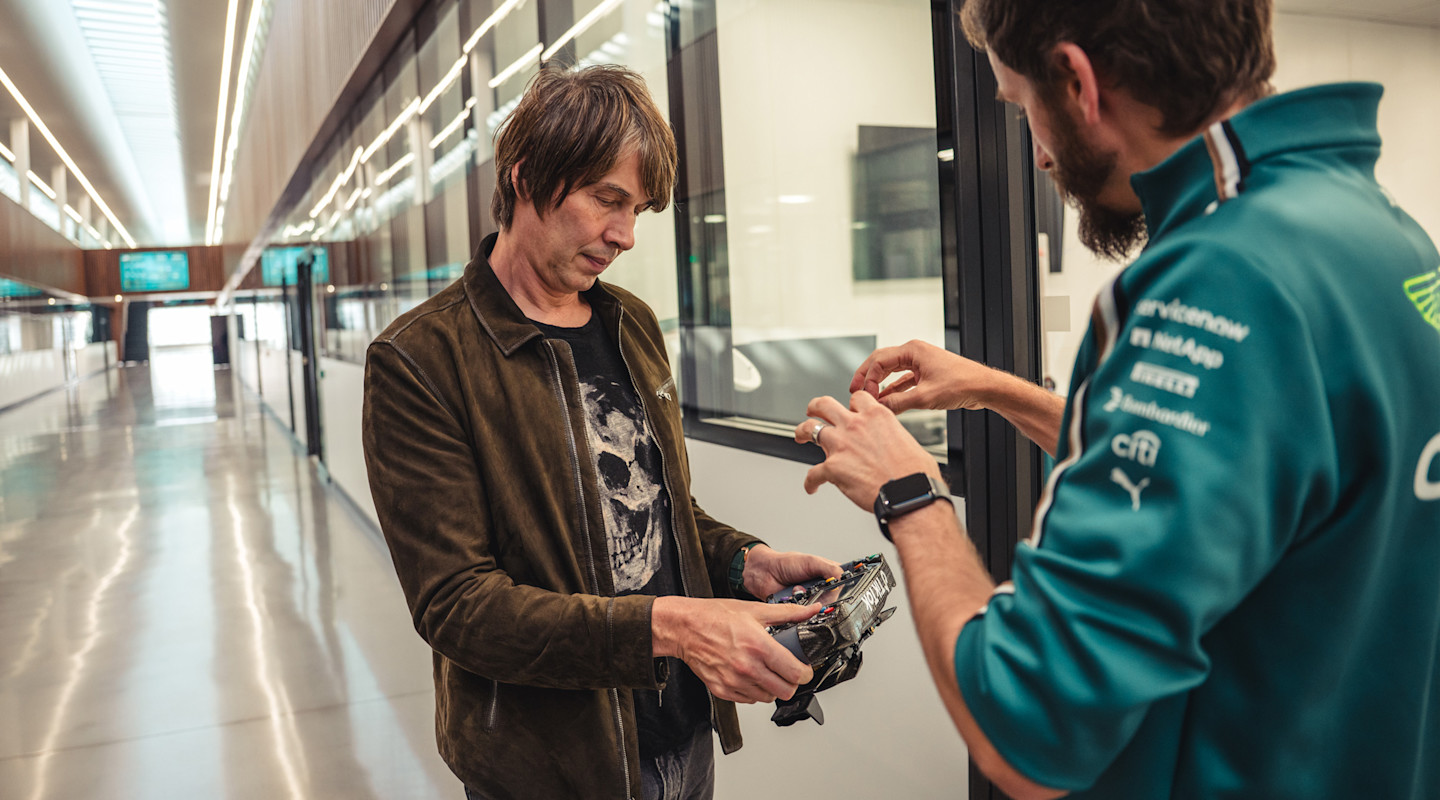
4 | Our planet may be the only place of meaning in a galaxy of 400 billion suns
"I asked a friend of mine, Sean Carroll, who is a great thinker and cosmologist, 'How many civilisations do you guess there are per galaxy on the average?' And he said, 'Knowing what we know, less than one on the average, which would put us as the only civilisation.'
"The number of worlds in the Milky Way galaxy with a civilisation might be one at the moment. It's possible. And I think that's a useful perspective. I was asked to give a talk at the COP Climate Summit a few years ago in Glasgow, and it was to be played to the world leaders.
"It is possible that this planet is the only planet amongst 400 billion stars in the Milky Way galaxy that has a civilisation. If this is the only place where complex life exists, I would say it's the only place where consciousness and, therefore, meaning exists in a galaxy of 400 billion suns.
"So I said to the world leaders, 'Each of you are responsible for a little piece or perhaps all of the future of this civilisation.'"
What you have is like a mini Apollo programme.
5 | Black holes and quantum computing have a lot in common
"Understanding how information behaves, in particular understanding what happens to the information of things that fall into the black hole, has been a 50-year project that started with Professor Stephen Hawking in 1974, and it is still ongoing.
"But the techniques that you need to analyse and to ask questions about information in the context of black holes are the same that you need to deploy if you want to protect the memory of quantum computers from errors and develop quantum error correction codes.
"What's interesting is the skillset. One of the things I realised when I was looking at Formula One is that what you have is like a mini Apollo programme, in the sense that you have a lot of engineers who are focused on a problem. It's a very specific problem where you learn a lot, and then you might go out into the wider economy and perhaps don't stay in Formula One forever, but the skills are generated.
"And this is another example of that; talking about black holes is theoretical physics, but the skillset turns out to be useful in quantum computers."
For more insight into the brave technical innovation that defines F1, click here.



Amplify your fan experience
From exclusive collabs to once-in-a-lifetime prizes, I / AM DROPS is a series of unique and ultra-limited moments and fan experiences.
Sign up for I / AM or sign in to unlock.


